Over the years, I’ve had the pleasure of traveling through both Arizona and Utah multiple times. Each state offers its own unique charm, landscapes, and National Parks, which makes them both perfect for nature lovers and adventure seekers.
But both states are also big and can take up a month+ to explore on their own, so how do you choose if you can’t do both? Here’s a detailed comparison of my experiences traveling through Arizona and Utah, highlighting their national parks, famous sites, key differences, and overall visitor experiences:
Utah vs. Arizona National Parks
Utah: The Beehive State
Zion National Park
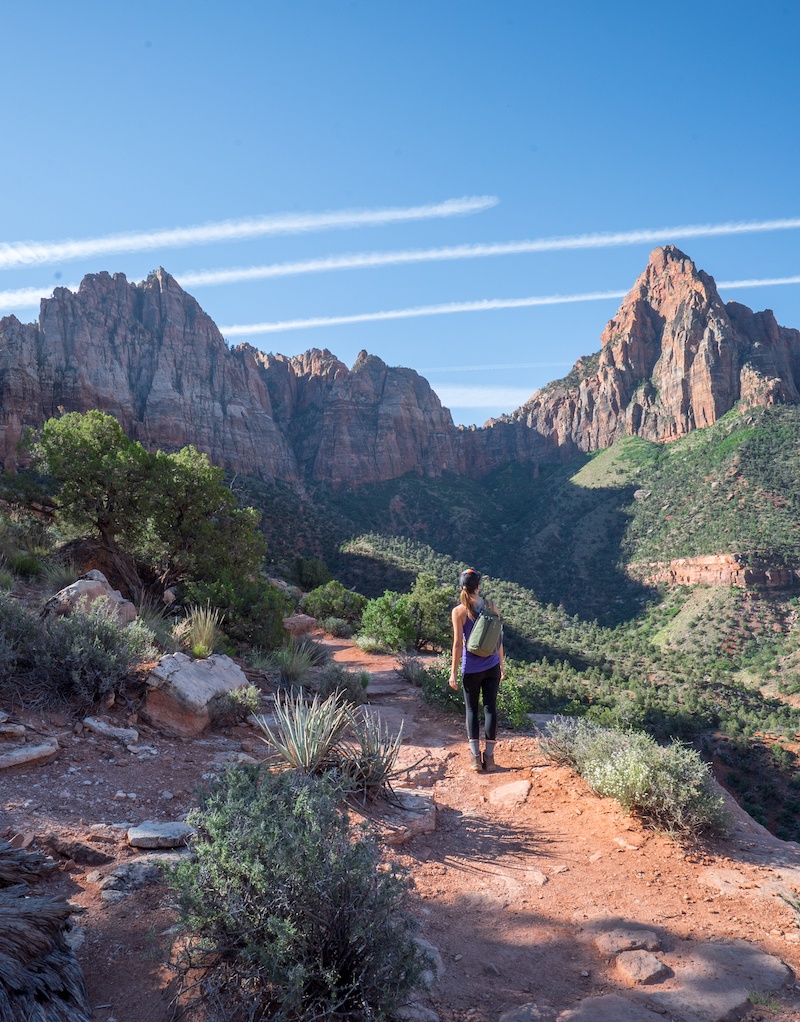
Utah’s Zion National Park is a place that always takes my breath away with its towering sandstone cliffs and narrow slot canyons. Hiking the emerald pools, camping along the Virgin River, and tackling the challenging Angels Landing trail are some of the highlights. I’ve visited in March, May, and June, and it’s equally stunning with a fresh coat of snow. Keep in mind it can get quite hot in the summer.
Bryce Canyon National Park
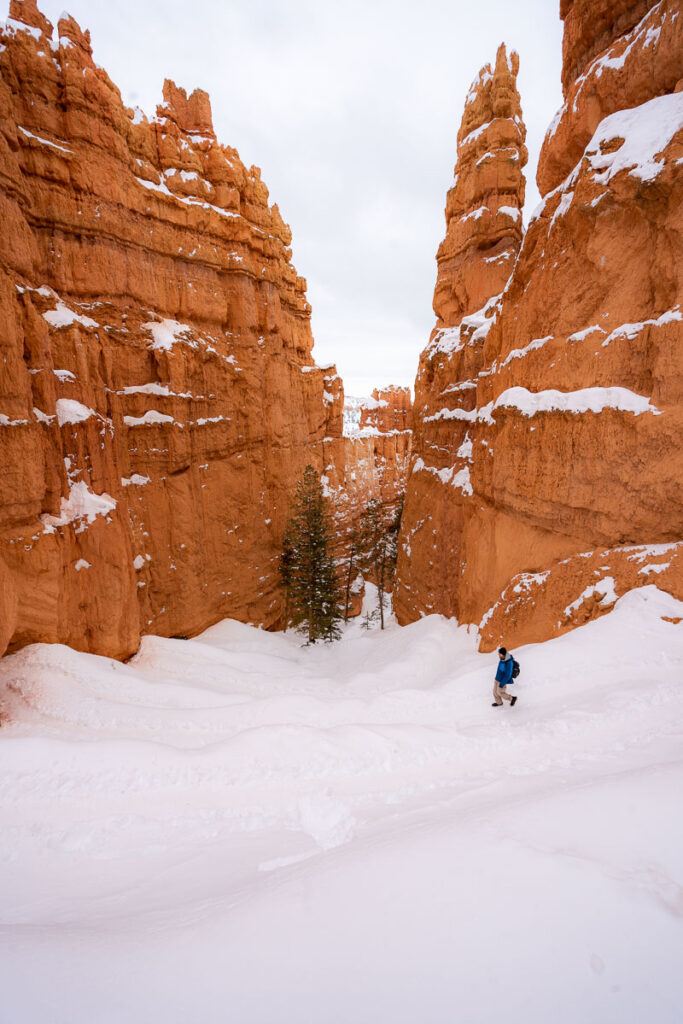
Bryce Canyon is famous for its unique hoodoos – tall, thin spires of rock that create otherworldly landscapes. The views from Sunrise and Sunset Points are particularly striking, and hiking the Queen’s Garden and Navajo Loop trails allowed me to walk among these incredible formations. It’s nice in the summer, but to me, Bryce really shines in the winter with snow to contrast the intense orange of the rock.
Arches National Park
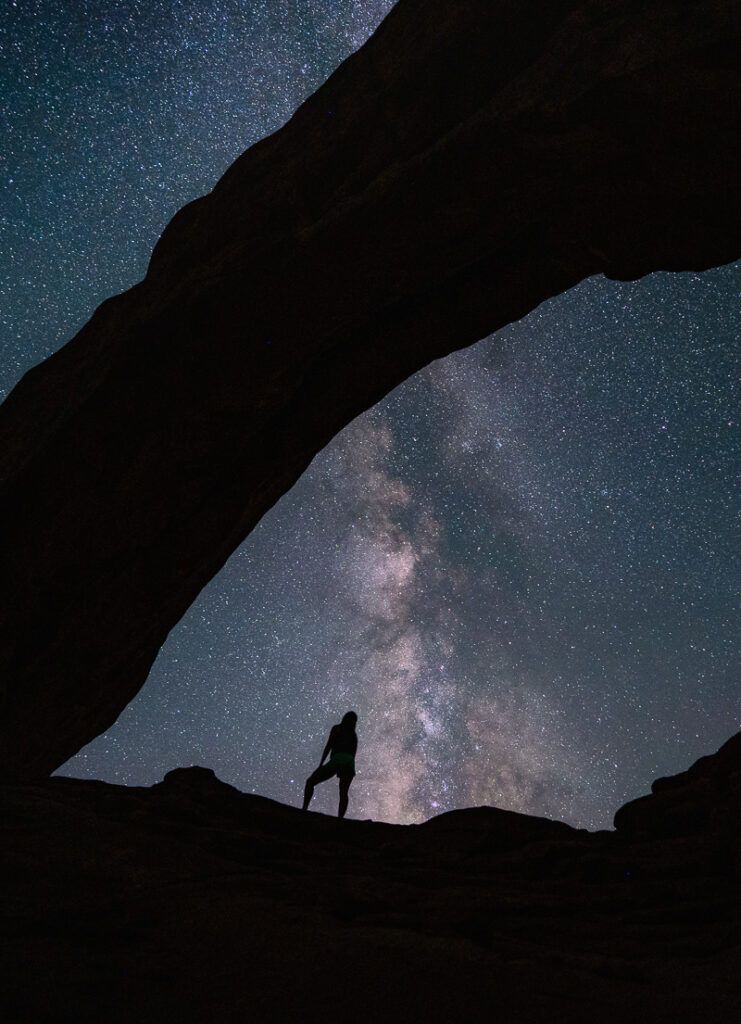
Arches National Park, with its over 2,000 natural stone arches, is a place of wonder. Delicate Arch, one of the most famous and photographed landmarks, is a must-see. The park’s rugged terrain and stunning rock formations provide endless opportunities for exploration and adventure, and I love Moab, the jumping off point for not just Arches, but Canyonlands and several state parks as well.
Arizona: The Grand Canyon State
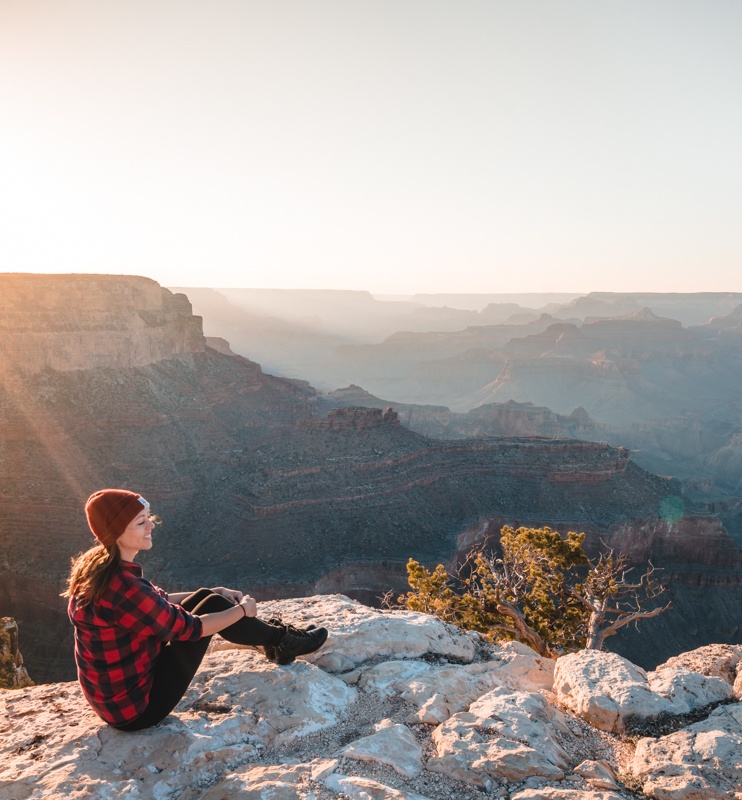
Grand Canyon National Park
Arizona is perhaps most famous for the Grand Canyon, one of the Seven Natural Wonders of the World. The sheer size of the Grand Canyon is unparalleled. Hiking the Bright Angel Trail, watching the sunrise at Mather Point, and taking a helicopter tour over the canyon are experiences I’ll never forget. The park is also home to the Colorado River, where rafting trips offer a thrilling way to see the canyon from a different perspective.
Saguaro National Park
Located near Tucson, Saguaro National Park is a desert paradise filled with the iconic saguaro cactus. The park’s two districts, Rincon Mountain and Tucson Mountain, offer a variety of hiking trails that showcase the unique flora and fauna of the Sonoran Desert. The sunset views here, with silhouettes of towering cacti against a fiery sky, are truly spectacular.
Petrified Forest National Park
The Petrified Forest National Park is another gem in Arizona’s crown. The park’s colorful badlands and ancient petrified wood make it a fascinating place to explore. Walking through the Blue Mesa Trail and seeing the vibrant, fossilized trees transported me back to prehistoric times.
Utah vs. Arizona Famous Sites and Attractions
Arizona:
Monument Valley
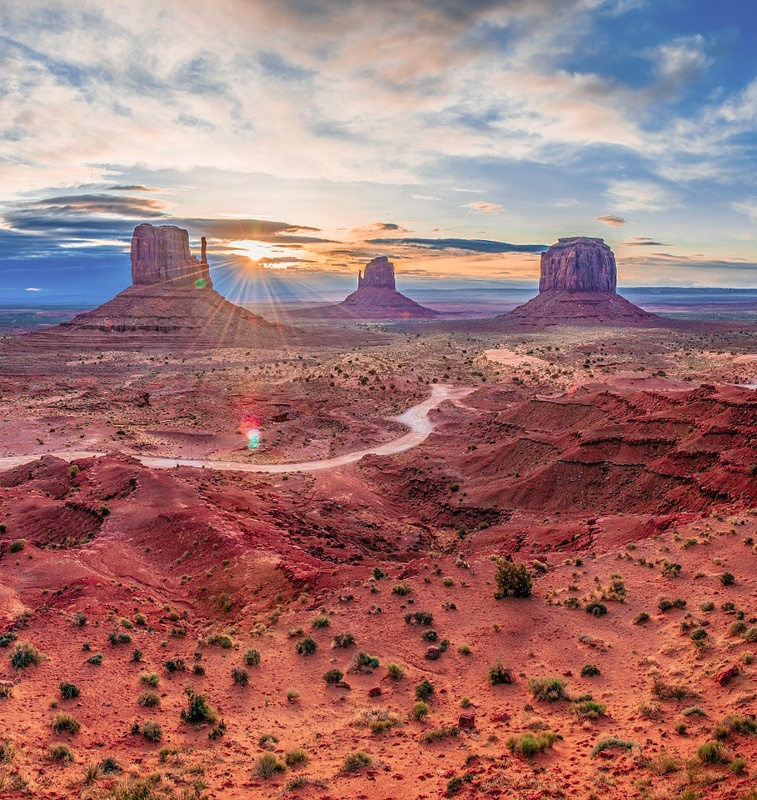
Monument Valley, on the Arizona-Utah border, is an iconic symbol of the American West. The red sandstone buttes and mesas are instantly recognizable from countless movies and photographs. Driving through the valley and taking a guided tour with a Navajo guide provided deeper insight into the area’s cultural and historical significance.
Sedona
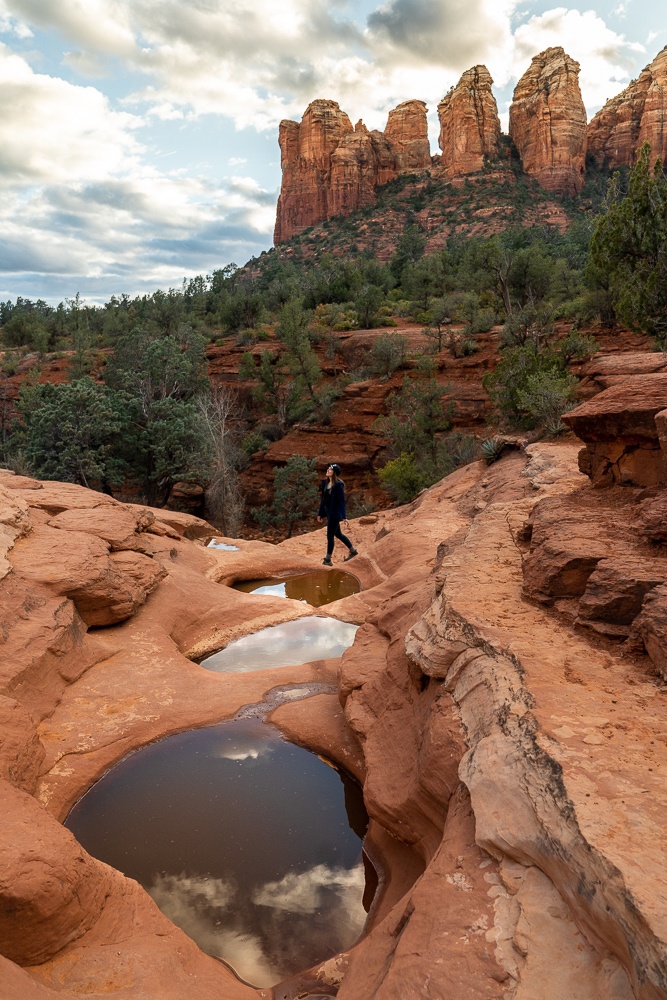
Sedona’s red rock landscapes and vortex sites have a mystical quality that draws visitors from all over the world. Hiking trails like Cathedral Rock and Bell Rock offer breathtaking views, while the town itself is filled with charming shops, art galleries, and luxury wellness resorts.
Coyote Buttes
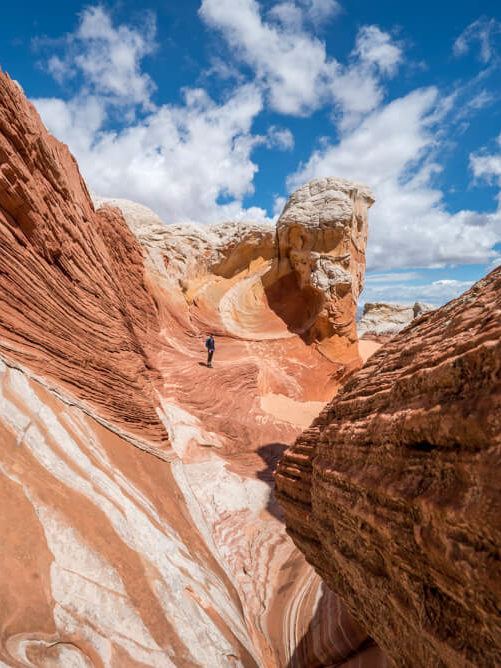
Coyote Buttes, located in the Paria Canyon-Vermilion Cliffs Wilderness, is home to The Wave, one of the most photographed sandstone formations in the world. Securing a permit to visit The Wave is a challenge due to its popularity, but white pocket, further down the same (sand and rock, 4WD required) road, you’ll find White Pocket, an easier permit to get an an equally unique rock formation.
Havasu Falls
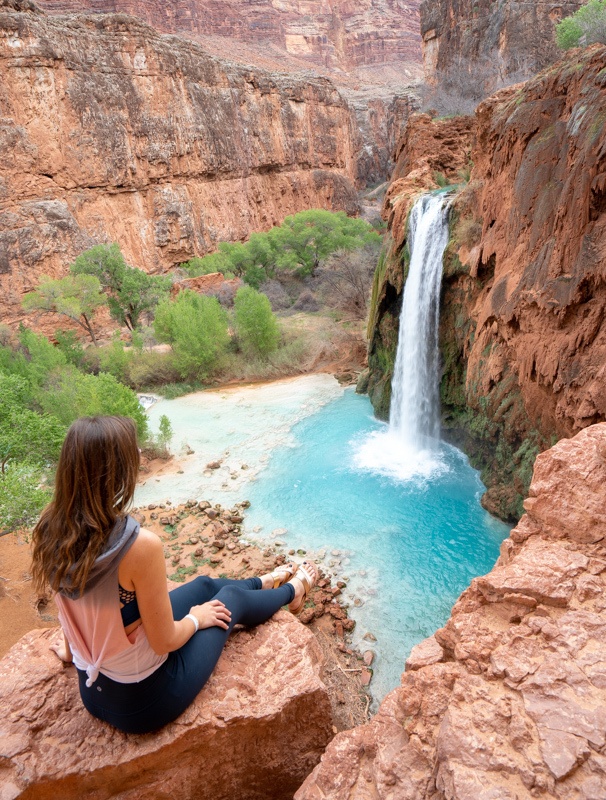
Havasu Falls, located in the Havasupai Reservation, is a hidden paradise of turquoise waterfalls and lush greenery. The hike to the falls is challenging but rewarding, with the vibrant blue water creating a striking contrast against the red canyon walls. Camping near the falls and taking a refreshing dip in the pools was a highlight of my travels in Arizona.
Antelope Canyon
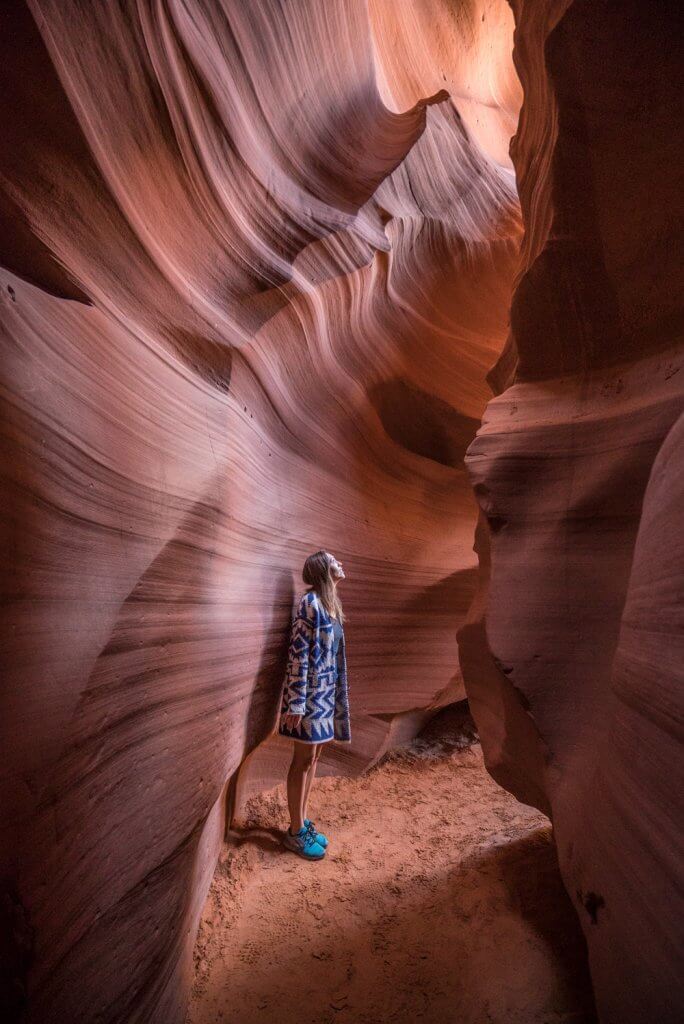
Antelope Canyon, near Page, is one of the most photographed slot canyons in the world. The narrow, winding passages and the play of light and shadow create a magical atmosphere. This is located on Navajo land, and taking a guided tour through the canyon allowed me to capture some incredible photographs and learn about the geology and history of this natural wonder.
– Read More –
Utah
Goblin Valley State Park
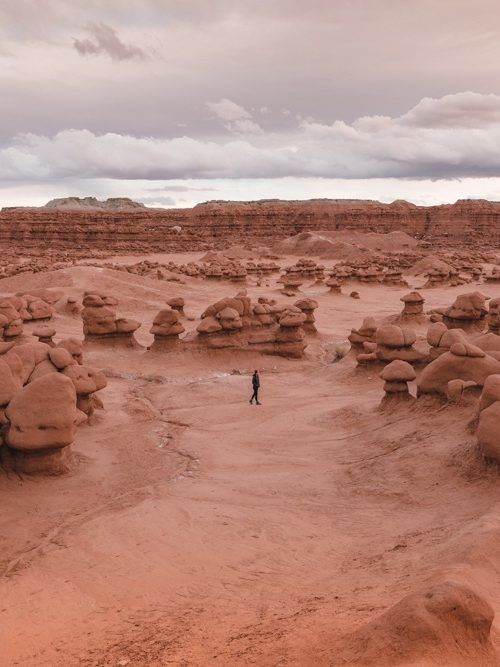
Goblin Valley State Park is one of Utah’s less known gems, featuring thousands of whimsical, mushroom-shaped rock formations known as hoodoos. Wandering through the valley felt like exploring a giant playground of natural sculptures. The unique landscape provides endless opportunities for photography and fun.
Dead Horse Point State Park
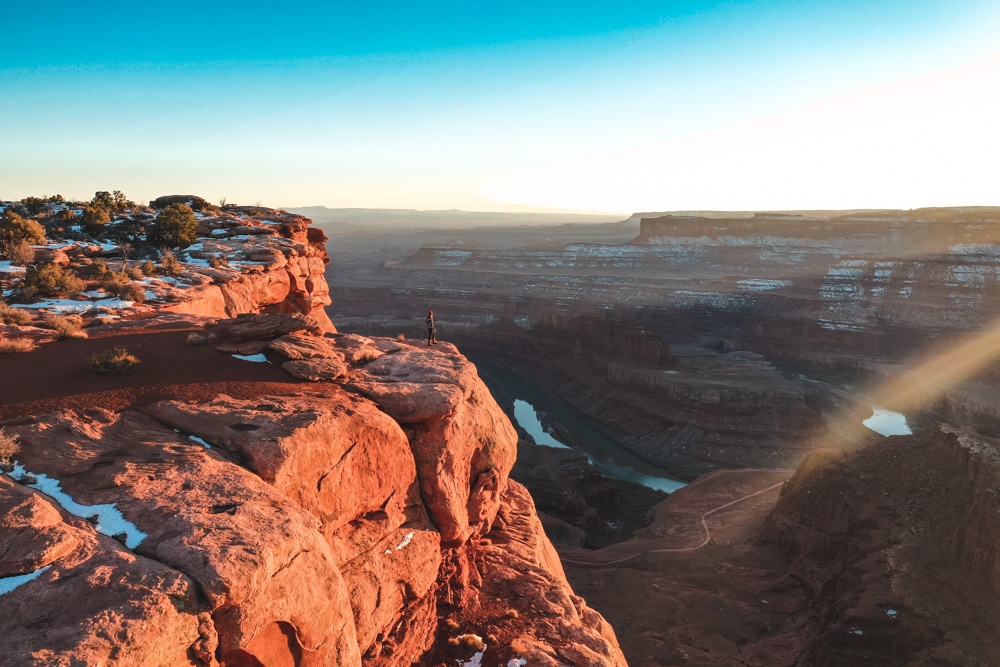
Dead Horse Point offers some of the most breathtaking views in Utah, with dramatic overlooks of the Colorado River and Canyonlands National Park. Watching the sunrise or sunset from the point is an unforgettable experience, as the light paints the canyon walls in vivid hues. The park also has several hiking and mountain biking trails that provide different perspectives of the stunning scenery.
Fifth Water Hot Springs
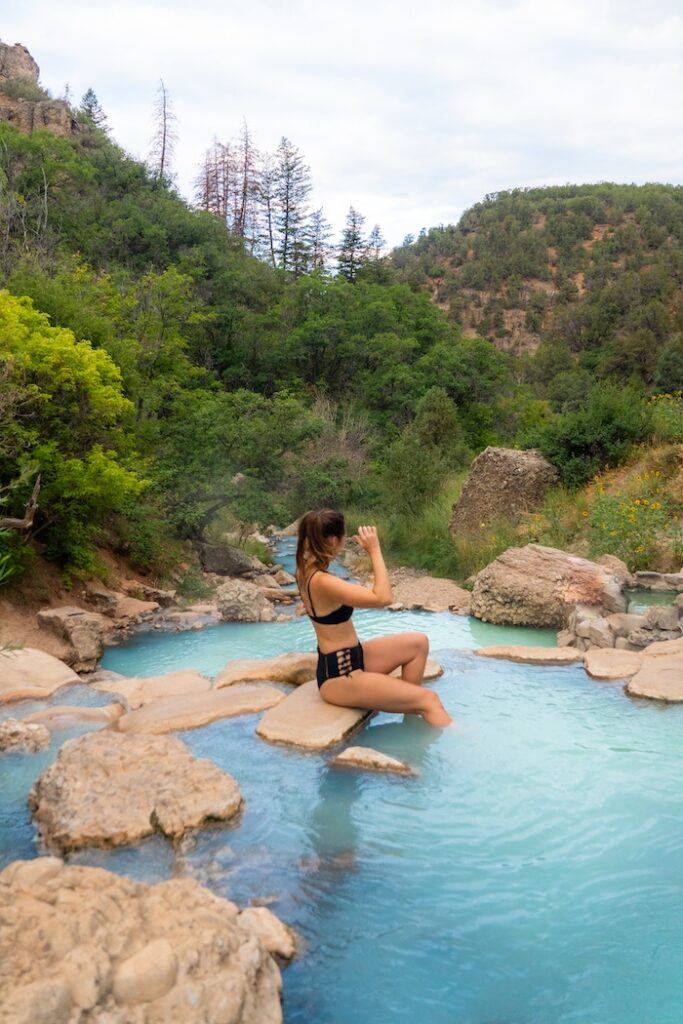
Located in Diamond Fork Canyon, Fifth Water Hot Springs is a series of natural hot springs along a beautiful creek. The hike to the springs is relatively easy and offers stunning views of the canyon. Soaking in the warm waters while surrounded by nature was a rejuvenating experience.
Mystic Hot Springs
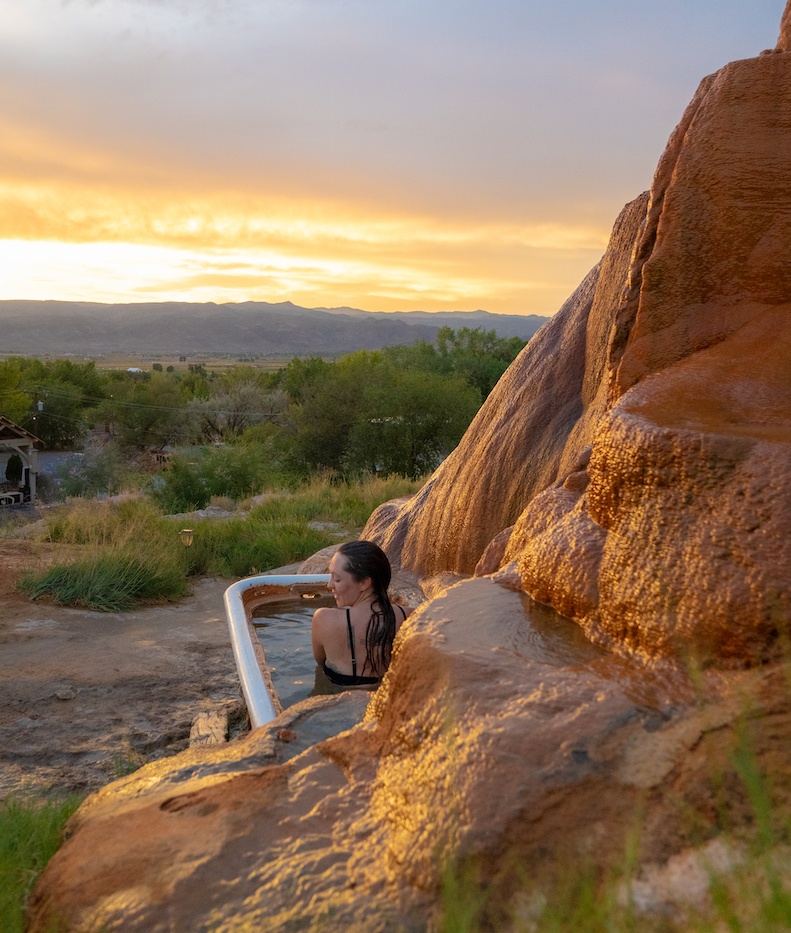
Mystic Hot Springs, located in Monroe, offers a unique blend of relaxation and art. The hot springs flow into old bathtubs and pools, creating a quirky and artistic setting. The warm, mineral-rich waters and the eclectic atmosphere make this a memorable stop on any Utah road trip.
Temple of the Sun and Moon
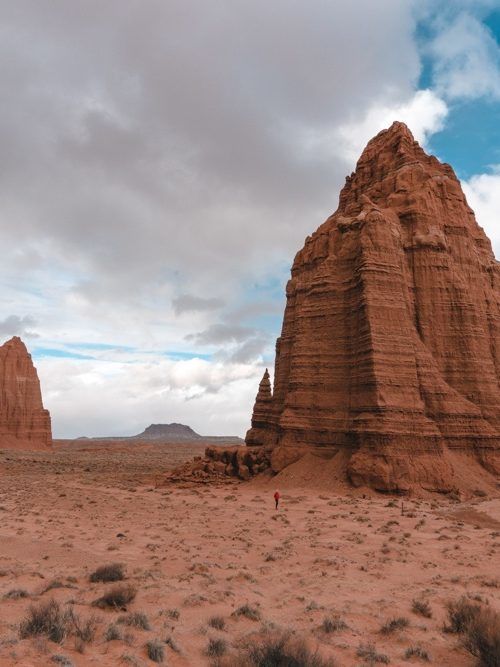
The Temple of the Sun and Moon in Capitol Reef National Park is a must-see for any adventurer. These towering sandstone monoliths rise majestically from the desert floor, creating a stark and beautiful contrast with the surrounding landscape. Exploring this remote area gave me a profound sense of solitude and awe.
– Read More –
Key Differences Between Arizona and Utah
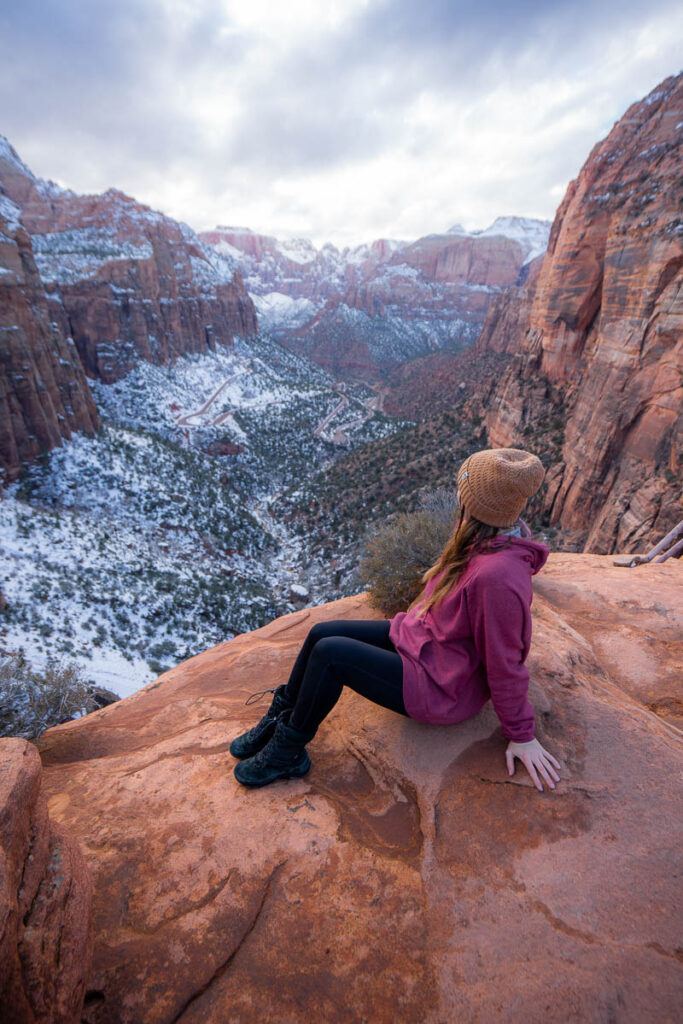
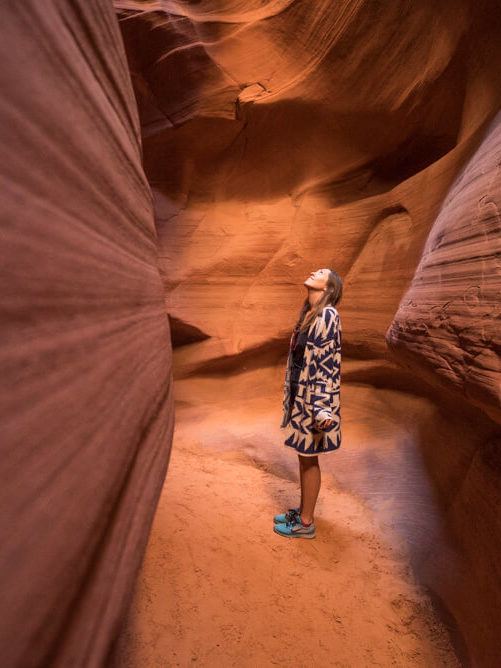
Landscapes and Climate
- Arizona: Arizona’s landscapes are incredibly diverse, ranging from the deserts of the south to the pine forests of the north. The state is known for its hot summers, particularly in places like Phoenix and Tucson, but the higher elevations around Flagstaff and the Grand Canyon offer cooler climates. The dramatic desert scenery, with its iconic cacti and red rocks, is a defining feature.
- Utah: Utah’s landscape is characterized by its red rock formations, high plateaus, and expansive salt flats. The climate varies widely, with the southern part of the state experiencing hot, dry conditions similar to Arizona, while the northern part, including Salt Lake City and the ski resorts, has cold winters with plenty of snow. The state’s unique geological features, such as the arches and hoodoos, are distinct from Arizona’s scenery.
Population and Amenities
- Arizona: Arizona has a population of around 7.5 million people, with Phoenix being the largest city and one of the fastest-growing metropolitan areas in the United States. The state offers a wide range of amenities, from luxury resorts and golf courses to world-class museums and cultural institutions. The larger cities provide plenty of dining, shopping, and entertainment options.
- Utah: Utah’s population is approximately 3.3 million, with Salt Lake City being the largest urban area. While it’s less populous than Arizona, Utah still offers a good range of amenities, particularly in the larger cities and tourist hubs like Park City and Moab. The state is known for its strong sense of community and high quality of life.
Visitor Numbers
- Arizona: Arizona attracts millions of visitors each year, with the Grand Canyon alone drawing over 6 million tourists annually. The state’s other national parks, like Saguaro and Petrified Forest, also see significant numbers of visitors, making tourism a major industry.
- Utah: Utah’s national parks, often referred to as the “Mighty 5” (Zion, Bryce Canyon, Arches, Canyonlands, and Capitol Reef), collectively attract over 10 million visitors each year. Zion National Park is the most visited, with around 4.5 million annual visitors, showcasing the state’s appeal as a premier outdoor destination.
Conclusion: Which State Wins?
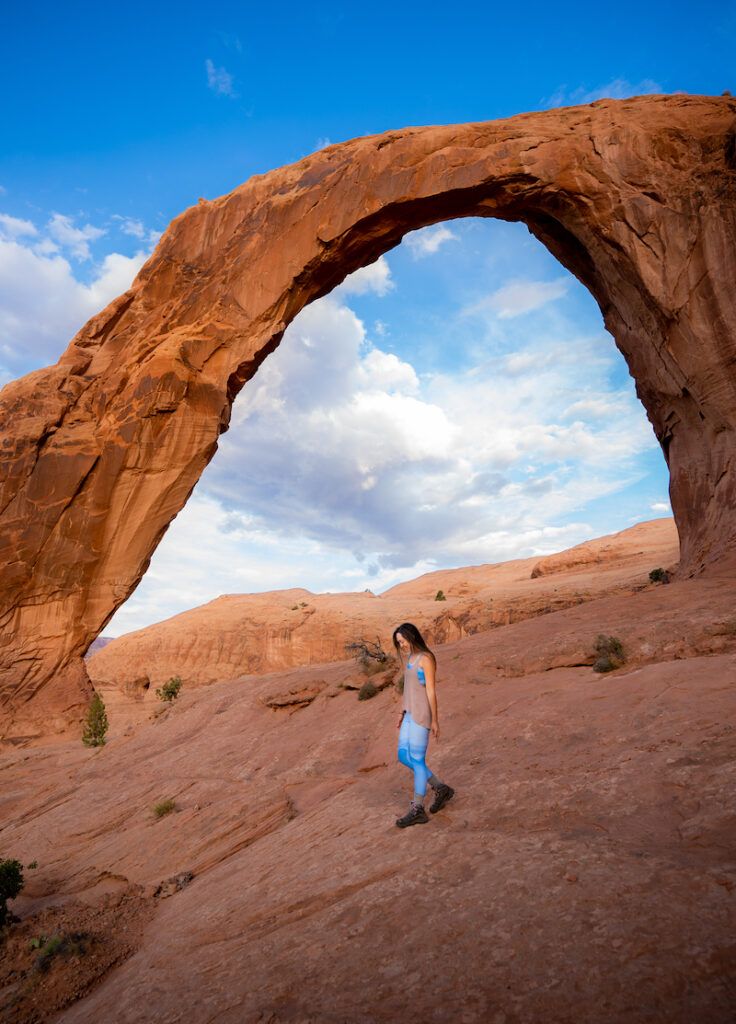
Choosing between Arizona and Utah for a travel destination is like picking between two masterpieces – they are similar yet different in so many ways.
I choose Arizona when I want a relaxing yet outdoorsy trip like I can have in Sedona or Scottsdale, or for the Page area, which is near Lake Powell, Horseshoe Bend, Antelope Canyon, and the Wave/White Pocket. It’s an incredible amount of things to see and do all in one spot.
I choose Utah when I just want to get lost into the landscape and nature. With so much of the state being public land, it’s my favorite place to go out and truck camp, though Nevada is quickly getting up there for me, too. The Bonneville Salt Flats, Uinta National Forest, and the Hanksville area are also incredible.

I love both, but Utah is one of my favorite places in the whole world (65 countries later), so I will always have to give the edge to Utah. It’s more unique overall, and is cooler than Arizona in the summertime, both of which are big factors for me!
Leave a Reply